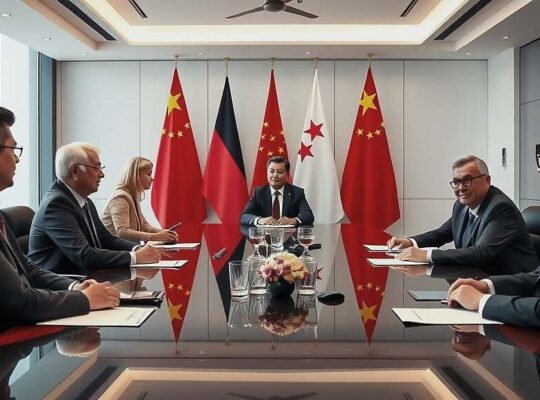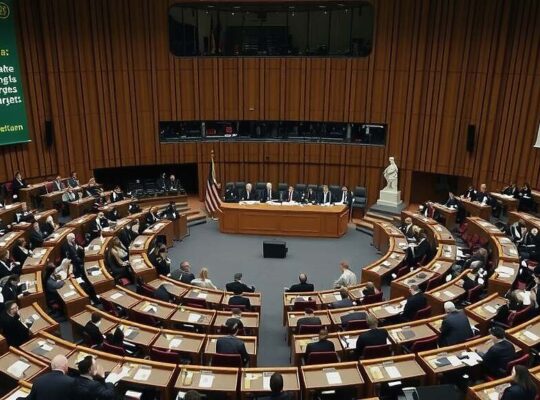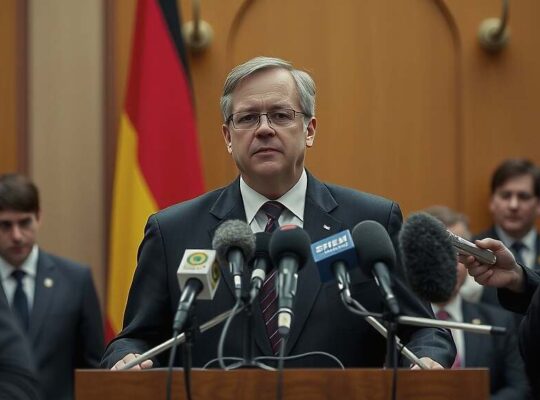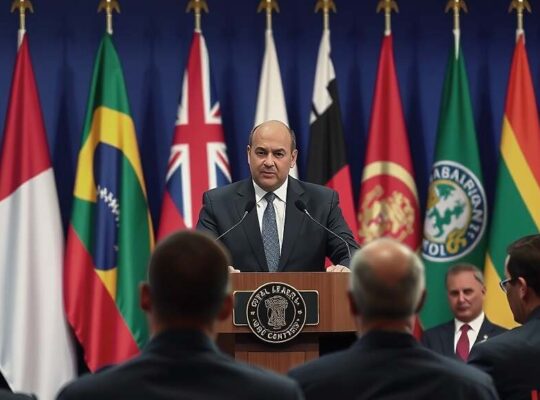The escalating controversy surrounding Culture State Minister Wolfram Weimer has triggered a fierce political backlash, with opposition parties accusing him of blurring the lines between private business interests and public duty. The accusations stem from reports concerning the Ludwig Erhard Summit, an event organized by Weimer’s former company, Weimer Media Group and suggesting a system where access to government ministers was allegedly offered to corporations in exchange for payment.
Jan van Aken, leader of the Left party (Die Linke), delivered a particularly scathing assessment, alleging the emergence of a corrupt political system driven by wealthy individuals. “Millionaires have bought a state secretary with Wolfram Weimer and installed a millionaire as chancellor with Friedrich Merz” he stated, alleging the process represented a deliberate effort to cultivate a government amenable to private financial interests. He characterized the situation as a “disgusting snake pit” and suggested the current trajectory threatened democratic legitimacy.
David Schliesing, the Left party’s spokesperson for media policy, demanded immediate action from Weimer, urging him to temporarily step down from his position pending a thorough investigation. Schliesing underscored the need for a decisive crack down on lobbying and corruption, emphasizing the importance of transparency and policies genuinely serving the public interest, rather than prioritizing private business models. He directed his criticism towards the ruling CDU/CSU and the SPD, questioning when they would “finally pull the emergency brake” and halt what he described as the “unrestrained delegitimization of democracy.
Katrin Göring-Eckardt, the Green Party’s spokesperson for culture and media, expressed reservations about Weimer’s judgment, characterizing his actions as indicative of “naivete and a lack of political sensitivity”. While acknowledging the existence of the Ludwig Erhard Summit itself wasn’t inherently problematic, Göring-Eckardt highlighted a fundamental concern: the apparent lack of change to the summit’s commercial framework since Weimer’s involvement in its ownership and subsequent entry into government. She called for clarity and an end to the “mixing of entrepreneurial activities with political decision-making.
Adding further pressure, the Bavarian state government is currently reviewing whether the Ludwig Erhard Summit should continue to receive state funding. This review is prompted by reports indicating that Weimer Media Group allegedly marketed access to federal ministers at the Tegernsee summit in exchange for payment, actively advertising the possibility of “influencing political decision-makers”. The unfolding situation represents a significant challenge to the German government’s commitment to ethical conduct and raises questions about the influence of private interests in political spheres.












